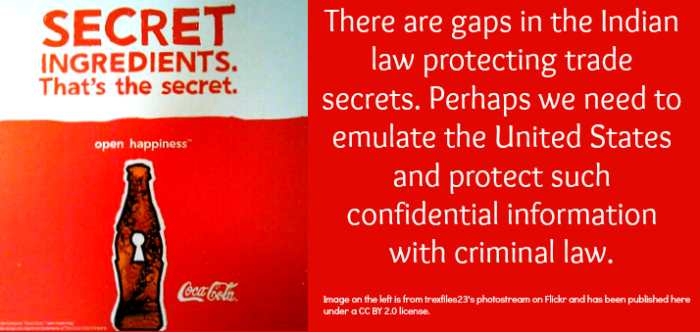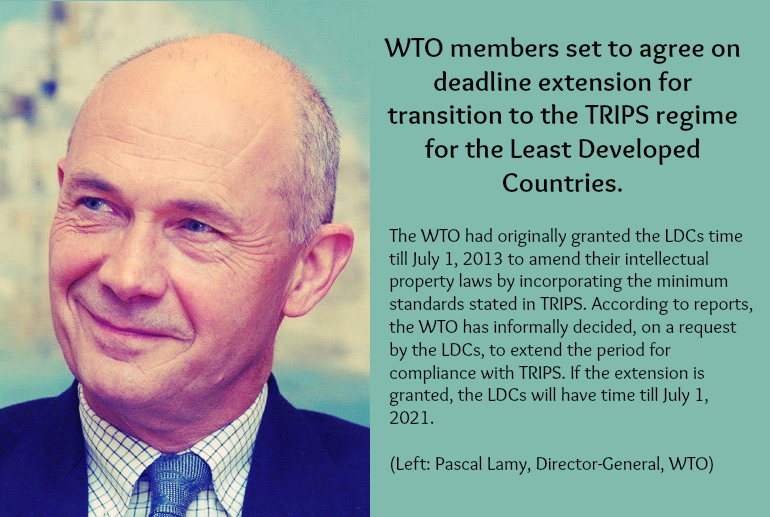On June 9, 2013, Edward Joseph Snowden disclosed that he had leaked details of the Central Intelligence Agency’s covert operations around the world. In 2010, another Edward, United States army soldier Private Bradley Edward Manning, leaked classified United States military data, diplomatic cables, and war logs to Wikileaks. Both of them are being compared to Daniel Ellsberg, the former United States Military analyst who released the Pentagon Papers revealing information about U.S. Government policies on the Vietnam War. Besides governments around the world, these events have made companies nervous about the protection of their sensitive information. In this context, it is important to discuss the Indian law regarding the protection of trade secrets and the misappropriation of confidential information.
Trade secrets and industrial espionage
According to the World Intellectual Property Organisation, any confidential business information, which provides an enterprise a competitive edge, may be considered a “trade secret” and can include a wide array of things, such as formulae, advertising strategies, lists of suppliers and clients, and manufacturing processes. According to the American Uniform Trade Secrets Act (“UTSA”) a “trade secret” is any information that has independent economic value not readily available to others. The definition under the American Economic Espionage Act (“EEA”) is even broader. These trade secrets may be misappropriated through industrial espionage, which is the theft of trade secrets by removing, copying, or recording them so that a competitor may use them.
In the United States, these acts are offences under the UTSA or the EEA. India however, does not have a formal legislation governing the protection of trade secrets, the misappropriation of confidential information, or industrial espionage. Confidential information and trade secrets are protected through contracts. Typically, employers restrict employees from leaking trade secrets or confidential information by having non-disclosure and confidentiality clauses in employment agreements. However, Indian courts have been reluctant to enforce such restrictive convenants and non-disclosure agreements, terming them as unenforceable under Section 27 (Agreements in restraint of trade) of the Indian Contract Act, 1872.
Even if such clauses were valid, there is no prohibition on the disclosure of confidential information and trade secrets — merely a contractual obligation. So, a person who is not privy to any agreement, such as a employer-employee agreement, has no obligation to protect any information he has received. The UTSA and the EEA prohibit the missappropriation of trade secrets by any third party even in the absence of any confidentiality agreement.
Indian courts however, have stated that if any person recieves some information in confidence, such a person cannot take unfair advantage or make profit out of the disclosure or use of that information. (See, for instance, Zee Telefilms v. Sundial Communications.) This is known as the “Springboard doctrine” and Indian courts have had to rely on common law principles and the decisions of foreign courts to adopt it.
Thus, the only remedy available is of a civil nature. In India, a person aggrieved in such cases can recieve nominal damages from the person charged with disclosure of confidential information. No Indian law prohibits or punishes industrial espionage.
A person can also leak trade secrets overseas through the Internet. Whereas the EEA prohibits a person from leaking trade secrets anywhere in the world, the Indian law on this point is not clear.
 Article 39 of the Agreement on Trade Related Aspects of Intellectual Property Rights (“TRIPS”) provides for the protection of trade secrets. A party to the TRIPS, India has made sui generis legislation for the protection plant varieties and semi-conductor integrated circuits in the past. The Indian government can look into making sui generis legislation for the protection of trade secrets, instead of relying on common law principles and foreign precedents.
Article 39 of the Agreement on Trade Related Aspects of Intellectual Property Rights (“TRIPS”) provides for the protection of trade secrets. A party to the TRIPS, India has made sui generis legislation for the protection plant varieties and semi-conductor integrated circuits in the past. The Indian government can look into making sui generis legislation for the protection of trade secrets, instead of relying on common law principles and foreign precedents.
(Samar Jha is part of the faculty on myLaw.net.)
(Click here to learn more about our programme on Intellectual Property Law.)


